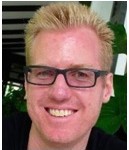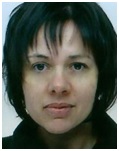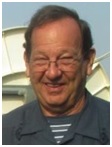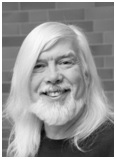GHTC 2015 Plenary Panel: The Future of Humanitarian Technology: Practitioners’ Perspective
Panelists:
Mark Haselkorn, Professor, University of Washington
Robin Mays, Ph.D. Researcher and Practioner, University of Washington
Miriam Orcutt, London School of Hygiene and Tropical Medicine (LSHTM)
Ian O’Donnell, Red Cross/Red Crescent Global Disaster Preparedness Center
Sian Platt, Plan International Bangladesh
Dennis Kalson, REHS, “Asesoria Global en Salud Ambiental”
Dan McClure, Thoughtworks Global Innovation Design Lead
Abstract:
Within the professionally recognized international humanitarian community, the primary implementers of humanitarian relief are Non-Governmental and International Organization (NGOs and IOs) workers, working with local governments and communities. As the primary users of humanitarian technology, we will hear from many of these practitioners on the current state and future direction of technology within their organizations and practices. Our facilitated panel will take us on a journey of current practice and initiatives in humanitarian technology; sharing the diversity of technological considerations in design, strategies and definitions that successfully interact with on-the-ground realities.
Panelist Bios:
 Prof. Mark Haselkorn is a Professor of Human Centered Design & Engineering at the University of Washington. His work focuses on the design, development, use and management of complex information and communication systems in support of collaborative work in highly uncertain and dynamic environments. He is Director of the Center for Collaborative Systems for Security, Safety, and Regional Resilience (CoSSaR), a multi-disciplinary environment where professionals from a wide range of entities (Federal, State, County, City, Tribal, International, Public and Private) team with university experts to align strategies, processes and investments in systems for security, safety and resilience. Dr. Haselkorn also founded and directs the UW’s Interdisciplinary Program on Humanitarian Relief, a cross-campus program of research and education that works with the international humanitarian sector to improve humanitarian response systems. Dr. Haselkorn is Past President of the IEEE Professional Communication Society and a member of the IEEE Medical Technology Policy Committee.
Prof. Mark Haselkorn is a Professor of Human Centered Design & Engineering at the University of Washington. His work focuses on the design, development, use and management of complex information and communication systems in support of collaborative work in highly uncertain and dynamic environments. He is Director of the Center for Collaborative Systems for Security, Safety, and Regional Resilience (CoSSaR), a multi-disciplinary environment where professionals from a wide range of entities (Federal, State, County, City, Tribal, International, Public and Private) team with university experts to align strategies, processes and investments in systems for security, safety and resilience. Dr. Haselkorn also founded and directs the UW’s Interdisciplinary Program on Humanitarian Relief, a cross-campus program of research and education that works with the international humanitarian sector to improve humanitarian response systems. Dr. Haselkorn is Past President of the IEEE Professional Communication Society and a member of the IEEE Medical Technology Policy Committee.
 Robin Mays is an ethnographic researcher and humanitarian field practitioner currently completing a Ph.D. with the Department of Human Centered Design and Engineering at the University of Washington. She has worked for over 18 years in rapid response operations and logistics, including an 11-year career as a humanitarian logistician. As a member of the response communities she studies, her research couples an insider perspective to explore and define critical elements in the design of disaster and humanitarian response systems that lead to more effective response.
Robin Mays is an ethnographic researcher and humanitarian field practitioner currently completing a Ph.D. with the Department of Human Centered Design and Engineering at the University of Washington. She has worked for over 18 years in rapid response operations and logistics, including an 11-year career as a humanitarian logistician. As a member of the response communities she studies, her research couples an insider perspective to explore and define critical elements in the design of disaster and humanitarian response systems that lead to more effective response.
 Dr. Miriam Orcutt, London School of Hygiene and Tropical Medicine (LSHTM)
Dr. Miriam Orcutt, London School of Hygiene and Tropical Medicine (LSHTM)
A medical doctor with eight years experience serving with global health communities in countries including India, Nepal, Bolivia, Argentina and Zambia. Research associate with the Humanitarian Innovation Project (Oxford) the Public Health in Humanitarian Crises Group (LSHTM), focusing on medical innovation in humanitarian aid and protracted humanitarian crises.
 Ian O’Donnell, Red Cross/Red Crescent Global Disaster Preparedness Center
Ian O’Donnell, Red Cross/Red Crescent Global Disaster Preparedness Center
Ian has spent over 15 years in disaster risk reduction and development planning across a wide range of organizations including Peace Corps, Asian Development Bank, and ProVention. He currently leads research and technology innovation initiatives for the Global Disaster Preparedness Center, hosted by the American Red Cross.
 Sian Platt, Plan International Bangladesh
Sian Platt, Plan International Bangladesh
Sian has 15 years field experience building capacity and managing programs with local communities in developing countries across a range of sectors including protection, education and children in emergencies. She has lived and worked in Bosnia, Myanmar, Pakistan, and Bangladesh.
 Dennis Kalson, REHS, “Asesoria Global en Salud Ambiental”
Dennis Kalson, REHS, “Asesoria Global en Salud Ambiental”
Dennis is an environmental health (EH) practitioner with more than 30 years field experience building innovative EH solutions and workforce empowerment strategies at local, regional and national levels in developing countries around the world.
 Dan McClure, Thoughtworks Global Innovation Design Lead
Dan McClure, Thoughtworks Global Innovation Design Lead
Dan has spent 30 years working on practical challenges that exist when doing innovation in complex and messy environments. He engages with humanitarian agencies in their disruptive spaces, with a current focus on looking at how to scale innovations within the humanitarian context.




